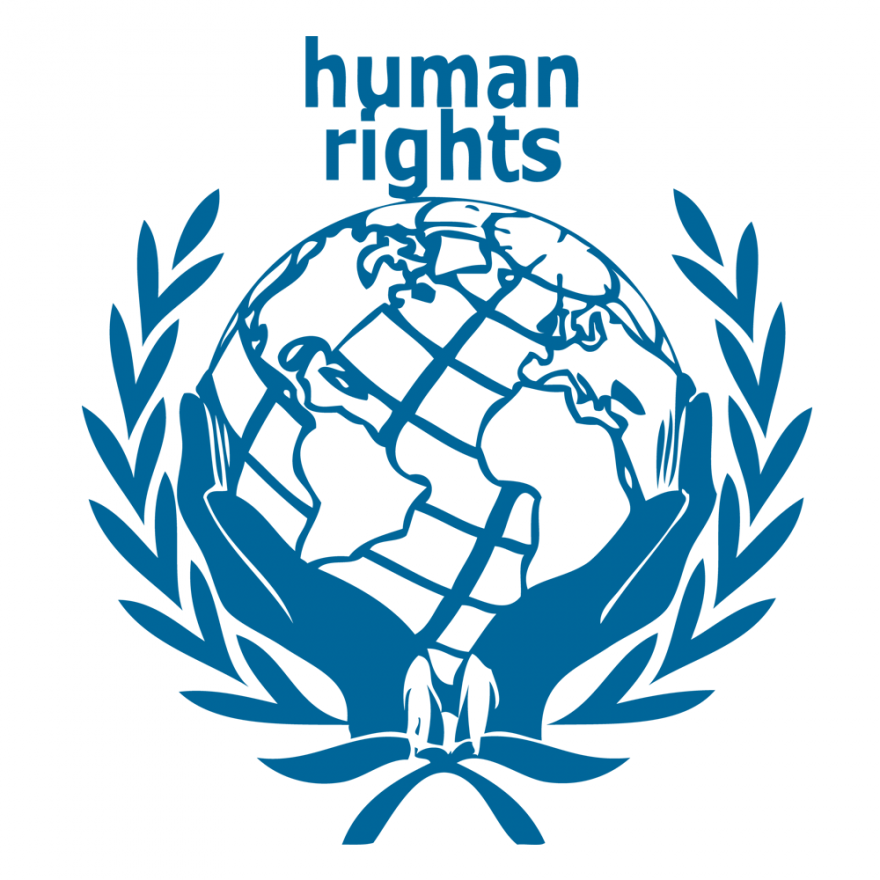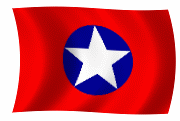 Tin nóng: Quốc hội Hoa Kỳ thông qua dự luật chế tài những người vi phạm Nhân Quyền
Tin nóng: Quốc hội Hoa Kỳ thông qua dự luật chế tài những người vi phạm Nhân Quyền

Chế tài những nguời vi phạm Nhân Quyền
Dự luật “chế tài những người vi phạm nhân quyền” là cấm những ai vi phạm nhân quyền trên thế giới sẽ không được đến Mỹ. Như vậy thì bọn cán bộ cao cấp CSVN ai cũng vị phạm nhân quyền…nhưng chúng ai cũng có con du học Mỹ và tiền bạc, nhà cửa ở Mỹ. Đạo luật này đánh vào đòn cân não của bọn chúng. Buộc chúng phải chùn chân, rút đầu không dám hung hăng đàn áp những người bất đồng chính kiến trong nước.
Luật nhân quyền Liên Hiệp Quốc gồm 30 điều khoản được ghi trong Tuyên Ngôn Quốc tế Nhân Quyền, người Việt Nam trong và ngoài nước hãy ghi tên, chụp hình những cán bộ CSVN tàn ác vi phạm nhân quyền để gửi lên cơ quan đặc trách nhân quyền liên hệ để chế tài chúng.
Chế tài những nguời vi phạm Nhân Quyền.
Vào lúc 11 giờ 30 sáng ngày Thứ Sáu , 2 tháng 12 vừa qua, Hạ Viện Hoa Kỳ đã thông qua Dự luật Global Magnitsky Human Rights Accountability Act (Chế Tài Những Người Vi Phạm Nhân Quyền” với tỉ số áp đảo: 375 / 34
Hôm thứ Sáu (một tuần sau đó) ngày 09 tháng 12, 2016 Thượng Viện Hoa Kỳ biểu quyết thông qua đa số tuyệt đối 92 / 07
Đâylà một chấn động lớn, tin mừng cho những người đấu tranh trong nước, giúp chúng ta sớm thúc đẩy và hoàn tất giấc mơ sớm đem lại Tự Do, Dân Chủ cho dân tộc và đất nước Việt Nam. Thành quả này này là công lao của rất nhiều nguời đóng góp, nhiều người đã từng lặn lội lên Quốc Hội Hoa Kỳ cùng với BPSOS trong nhiều năm qua để vận động với các Dân Biểu va Thượng Ngị Sĩ tại Quốc Hội Hoa Kỳ.
Tiến Sĩ Nguyễn Đình Thắng cho biết, chúng ta đã vận động cho Dự Luật “Chế tài những nguời vi phạm Nhân Quyền” từ lúc cựu Dân Biểu Cao Quang Ánh còn làm việc ở Quốc Hội Hoa Kỳ (2010), mất sáu năm mới có được kết quả này.

Thượng Nghị Sĩ Benjamin Cardin (D-MD)
Đồng hương Việt Nam ở Maryland đã vận động rất nhiều với Thượng Nghị Sĩ Benjamin Cardin, ông đã đưa dự luật này ra Thượng Viện Hoa Kỳ đã ủng hộ dự thảo luật này 100%. Tuy thế muốn thành luật thì phải chuyển văn bản luật đến Hạ Viện chấp thuận, sau đó đưa lại Thượng Viện thông qua, sau khi hai viện đã đồng ý chuyển cho người cầm đầu hành pháp tức Tổng Thống Barack Obama ký. Nếu Tổng Thống Obama chấp thuận thì dự luật này sẽ trở thành Đạo luật.
Đây lần đầu tiên trong Quốc Hội Hoa Kỳ có một điều khoản mà chúng ta – những người Việt hải ngoại áp dụng được để chế tài (trừng phạt) một cách đích đáng những kẻ vi phạm nhân quyền (ở Việt Nam). Luật này chế tài từng cá nhân của những kẻ vi phạm các quyền con người được Tuyên Ngôn Quốc Tế Nhân Quyền công nhận, can dự vào các trường hợp cướp đoạt tài sản, hay dính líu đến các vụ tham nhũng lớn. Điều này chưa bao giờ có trong luật của Hoa Kỳ. Trước đây nếu có chế tài thì chế tài cả một nước, nhiều khi ảnh hưởng đến nguời dân do bị mất viện trợ, bị nghèo đói … còn người cầm quyền vi phạm thì không bị ảnh hưởng gì vì chúng đã tham nhũng quá giàu. Nhưng luật này chế tài từng cá nhân những kẻ vi phạm, không ảnh hưởng đến nguời dân mà nhắm trực tiếp vào cá nhân chức quyền liên can đến các vụ vi phạm nhân quyền.
Các biện pháp chế tài: Thứ nhất là không cấp chiếu khán để vào Hoa kỳ cho những kẻ vi phạm. Ví dụ, Bộ trưởng Công An ở VN vi phạm nhân quyền trầm trọng thì ông không được cấp chiếu khán dù sang Hoa Kỳ vì công vụ trừ khi xin Tổng Thống Hoa Kỳ đặc miễn. Thứ hai, quan trọng hơn nữa là đóng băng tất cả tài sản của những người vi phạm. Nếu như họ đã có công trong băng ở Hoa kỳ hay đuợc chuyển qua Hoa kỳ hay giao cho người nào khác là công dân Hoa kỳ hoặc thuờng trú nhân ở Hoa kỳ thì sẽ bị đóng băng. Vì dụ như các viên chức Việt Cộng đưa con cái đi du học bên Mỹ, họ chuyển tài sản cho con cái ở đây thì những trương mục ngân hàng ở Mỹ cũng bị đóng băng hết. Điều này áp dụng cho bất động sản và các tài sản khác. Đó là một sự thay đổi rất lớn so với trước đây.
Đó là một thành quả rất lớn sau nhiều năm đồng hương đã miệt mài của nhiều người cùng với cùng với BPSOS tranh đấu để có biện pháp chế tài này. Chúng ta sắp đạt được điều mong muốn.
———————————————————
Dưới đây là toàn bộ bản Anh Ngữ của Global Magnitsky Human Rights Accountability
IN THE HOUSE OF REPRESENTATIVES
April 18, 2016
Referred to the Committee on Foreign Affairs, and in addition to the Committee on the Judiciary, for a period to be subsequently determined by the Speaker, in each case for consideration of such provisions as fall within the jurisdiction of the committee concerned
AN ACT
To impose sanctions with respect to foreign persons responsible for gross violations of internationally recognized human rights, and for other purposes.
Be it enacted by the Senate and House of Representatives of the United States of America in Congress assembled,
SECTION 1. Short title.
This Act may be cited as the “Global Magnitsky Human Rights Accountability Act”.
SEC. 2. Definitions.
In this Act:
(1) FOREIGN PERSON.—The term “foreign person” means a person that is not a United States person.
(2) PERSON.—The term “person” means an individual or entity.
(3) UNITED STATES PERSON.—The term “United States person” means—
(A) a United States citizen or an alien lawfully admitted for permanent residence to the United States; or
(B) an entity organized under the laws of the United States or of any jurisdiction within the United States, including a foreign branch of such an entity.
SEC. 3. Authorization of imposition of sanctions.
(a) In general.—The President may impose the sanctions described in subsection (b) with respect to any foreign person the President determines, based on credible evidence—
(1) is responsible for extrajudicial killings, torture, or other gross violations of internationally recognized human rights committed against individuals in any foreign country who seek—
(A) to expose illegal activity carried out by government officials; or
(B) to obtain, exercise, defend, or promote internationally recognized human rights and freedoms, such as the freedoms of religion, expression, association, and assembly, and the rights to a fair trial and democratic elections;
(2) acted as an agent of or on behalf of a foreign person in a matter relating to an activity described in paragraph (1);
(3) is a government official, or a senior associate of such an official, that is responsible for, or complicit in, ordering, controlling, or otherwise directing, acts of significant corruption, including the expropriation of private or public assets for personal gain, corruption related to government contracts or the extraction of natural resources, bribery, or the facilitation or transfer of the proceeds of corruption to foreign jurisdictions; or
(4) has materially assisted, sponsored, or provided financial, material, or technological support for, or goods or services in support of, an activity described in paragraph (3).
(b) Sanctions described.—The sanctions described in this subsection are the following:
(1) INADMISSIBILITY TO UNITED STATES.—In the case of a foreign person who is an individual—
(A) ineligibility to receive a visa to enter the United States or to be admitted to the United States; or
(B) if the individual has been issued a visa or other documentation, revocation, in accordance with section 221(i) of the Immigration and Nationality Act (8 U.S.C. 1201(i)), of the visa or other documentation.
(2) BLOCKING OF PROPERTY.—
(A) IN GENERAL.—The blocking, in accordance with the International Emergency Economic Powers Act (50 U.S.C. 1701 et seq.), of all transactions in all property and interests in property of a foreign person if such property and interests in property are in the United States, come within the United States, or are or come within the possession or control of a United States person.
(B) INAPPLICABILITY OF NATIONAL EMERGENCY REQUIREMENT.—The requirements of section 202 of the International Emergency Economic Powers Act (50 U.S.C. 1701) shall not apply for purposes of this section.
(C) EXCEPTION RELATING TO IMPORTATION OF GOODS.—
(i) IN GENERAL.—The authority to block and prohibit all transactions in all property and interests in property under subparagraph (A) shall not include the authority to impose sanctions on the importation of goods.
(ii) GOOD.—In this subparagraph, the term “good” has the meaning given that term in section 16 of the Export Administration Act of 1979 (50 U.S.C. App. 2415) (as continued in effect pursuant to the International Emergency Economic Powers Act (50 U.S.C. 1701 et seq.)).
(c) Consideration of certain information in imposing sanctions.—In determining whether to impose sanctions under subsection (a), the President shall consider—
(1) information provided by the chairperson and ranking member of each of the appropriate congressional committees; and
(2) credible information obtained by other countries and nongovernmental organizations that monitor violations of human rights.
(d) Requests by chairperson and ranking member of appropriate congressional committees.—Not later than 120 days after receiving a written request from the chairperson and ranking member of one of the appropriate congressional committees with respect to whether a foreign person has engaged in an activity described in subsection (a), the President shall—
(1) determine if that person has engaged in such an activity; and
(2) submit a report to the chairperson and ranking member of that committee with respect to that determination that includes—
(A) a statement of whether or not the President imposed or intends to impose sanctions with respect to the person; and
(B) if the President imposed or intends to impose sanctions, a description of those sanctions.
(e) Exception To Comply With United Nations Headquarters Agreement and law enforcement objectives.—Sanctions under subsection (b)(1) shall not apply to an individual if admitting the individual into the United States would further important law enforcement objectives or is necessary to permit the United States to comply with the Agreement regarding the Headquarters of the United Nations, signed at Lake Success June 26, 1947, and entered into force November 21, 1947, between the United Nations and the United States, or other applicable international obligations of the United States.
(f) Enforcement of blocking of property.—A person that violates, attempts to violate, conspires to violate, or causes a violation of subsection (b)(2) or any regulation, license, or order issued to carry out subsection (b)(2) shall be subject to the penalties set forth in subsections (b) and (c) of section 206 of the International Emergency Economic Powers Act (50 U.S.C. 1705) to the same extent as a person that commits an unlawful act described in subsection (a) of that section.
(g) Termination of sanctions.—The President may terminate the application of sanctions under this section with respect to a person if the President determines and reports to the appropriate congressional committees not later than 15 days before the termination of the sanctions that—
(1) credible information exists that the person did not engage in the activity for which sanctions were imposed;
(2) the person has been prosecuted appropriately for the activity for which sanctions were imposed;
(3) the person has credibly demonstrated a significant change in behavior, has paid an appropriate consequence for the activity for which sanctions were imposed, and has credibly committed to not engage in an activity described in subsection (a) in the future; or
(4) the termination of the sanctions is in the vital national security interests of the United States.
(h) Regulatory authority.—The President shall issue such regulations, licenses, and orders as are necessary to carry out this section.
(i) Identification of sanctionable foreign persons.—The Assistant Secretary of State for Democracy, Human Rights, and Labor, in consultation with the Assistant Secretary of State for Consular Affairs and other bureaus of the Department of State, as appropriate, is authorized to submit to the Secretary of State, for review and consideration, the names of foreign persons who may meet the criteria described in subsection (a).
(j) Appropriate congressional committees defined.—In this section, the term “appropriate congressional committees” means—
(1) the Committee on Banking, Housing, and Urban Affairs and the Committee on Foreign Relations of the Senate; and
(2) the Committee on Financial Services and the Committee on Foreign Affairs of the House of Representatives.
SEC. 4. Reports to Congress.
(a) In general.—The President shall submit to the appropriate congressional committees, in accordance with subsection (b), a report that includes—
(1) a list of each foreign person with respect to which the President imposed sanctions pursuant to section 3 during the year preceding the submission of the report;
(2) a description of the type of sanctions imposed with respect to each such person;
(3) the number of foreign persons with respect to which the President—
(A) imposed sanctions under section 3(a) during that year; and
(B) terminated sanctions under section 3(g) during that year;
(4) the dates on which such sanctions were imposed or terminated, as the case may be;
(5) the reasons for imposing or terminating such sanctions; and
(6) a description of the efforts of the President to encourage the governments of other countries to impose sanctions that are similar to the sanctions authorized by section 3.
(b) Dates for submission.—
(1) INITIAL REPORT.—The President shall submit the initial report under subsection (a) not later than 120 days after the date of the enactment of this Act.
(2) SUBSEQUENT REPORTS.—
(A) IN GENERAL.—The President shall submit a subsequent report under subsection (a) on December 10, or the first day thereafter on which both Houses of Congress are in session, of—
(i) the calendar year in which the initial report is submitted if the initial report is submitted before December 10 of that calendar year; and
(ii) each calendar year thereafter.
(B) CONGRESSIONAL STATEMENT.—Congress notes that December 10 of each calendar year has been recognized in the United States and internationally since 1950 as “Human Rights Day”.
(c) Form of report.—
(1) IN GENERAL.—Each report required by subsection (a) shall be submitted in unclassified form, but may include a classified annex.
(2) EXCEPTION.—The name of a foreign person to be included in the list required by subsection (a)(1) may be submitted in the classified annex authorized by paragraph (1) only if the President—
(A) determines that it is vital for the national security interests of the United States to do so;
(B) uses the annex in a manner consistent with congressional intent and the purposes of this Act; and
(C) not later than 15 days before submitting the name in a classified annex, provides to the appropriate congressional committees notice of, and a justification for, including the name in the classified annex despite any publicly available credible information indicating that the person engaged in an activity described in section 3(a).
(d) Public availability.—
(1) IN GENERAL.—The unclassified portion of the report required by subsection (a) shall be made available to the public, including through publication in the Federal Register.
(2) NONAPPLICABILITY OF CONFIDENTIALITY REQUIREMENT WITH RESPECT TO VISA RECORDS.—The President shall publish the list required by subsection (a)(1) without regard to the requirements of section 222(f) of the Immigration and Nationality Act (8 U.S.C. 1202(f)) with respect to confidentiality of records pertaining to the issuance or refusal of visas or permits to enter the United States.
(e) Appropriate congressional committees defined.—In this section, the term “appropriate congressional committees” means—
(1) the Committee on Appropriations, the Committee on Banking, Housing, and Urban Affairs, the Committee on Foreign Relations, and the Committee on the Judiciary of the Senate; and
(2) the Committee on Appropriations, the Committee on Financial Services, the Committee on Foreign Affairs, and the Committee on the Judiciary of the House of Representatives.
Passed the Senate December 17, 2015.
| Attest: | julie e. adams, |
| Secretary |

